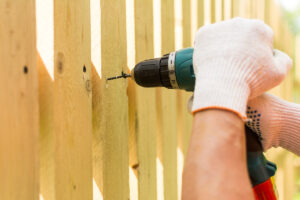
Winterizing your home’s fence just requires a few steps to ensure its longevity.
As winter approaches, homeowners often prepare their homes for the colder months. While winterizing indoor spaces is a priority, fences are another crucial area that often goes overlooked. Properly winterizing your fence can help prevent damage, extend its life, and ensure it looks great come spring. Here’s everything you need to know about winterizing your home’s fence, whether it’s made of wood, vinyl, or metal.
Why Winterizing Your Fence Matters
Winter weather can be tough on your fence. Snow, ice, and fluctuating temperatures can cause wear and tear that can weaken the structure and damage its appearance. For wooden fences, moisture and cold can cause warping, splitting, and even rot, while metal fences are susceptible to rust and corrosion. Even vinyl fences, though more resilient to moisture, can crack if they’re exposed to sudden temperature drops without proper care.
By taking steps to winterize your fence, you’re protecting your investment, keeping it safe and sturdy through the season, and potentially avoiding costly repairs down the road. Winterizing doesn’t have to be a major task—just a few preventative measures can make a big difference.
Inspect and Repair
Before winter weather sets in, inspect your fence for any existing damage. Look for loose boards, nails, or screws, as well as signs of rot, rust, or cracks. Addressing these issues now will help prevent further damage during winter.
- For wood fences: Check for rot or insect damage and replace any broken boards. Make sure posts are solidly in place, as winter weather can worsen any existing instability.
- For vinyl fences: Inspect for cracks or areas where panels may have separated. Even minor cracks can worsen when exposed to freezing temperatures.
- For metal fences: Look for areas of rust, particularly near the base. Rust can quickly spread, especially when exposed to moisture, so use a rust-inhibiting primer to treat affected spots.
Clean Your Fence
Dirt and debris can accelerate wear on your fence, particularly during the winter when they hold onto moisture. Give your fence a good cleaning before winter sets in.
- Wood fences: Use a gentle pressure washer or a soft brush and mild detergent to clean dirt and grime off your wood fence. This will help prevent mold or mildew growth, which can lead to rot.
- Vinyl fences: Vinyl is generally low-maintenance, but it’s still a good idea to clean it with water and a gentle cleanser to remove any buildup that could stain over the winter.
- Metal fences: A clean metal fence is less likely to rust, so use a wire brush to remove any debris and finish with a hose-down.
Apply a Weatherproof Sealant
Applying a protective sealant is one of the best ways to keep your fence protected from winter moisture.
- Wood fences: Wood is naturally porous and will absorb moisture if it’s not sealed properly. Applying a weatherproof sealant can protect your fence from snow and ice. If it’s been a while since you last sealed your fence, or if you haven’t done so before, now is the time.
- Vinyl fences: Vinyl doesn’t need a sealant, but applying a UV protectant can help maintain its color and appearance, especially if your winters are sunny.
- Metal fences: Use a rust-preventative spray, especially if you live in an area where the roads are salted. Salt can quickly corrode metal, so a barrier will help keep rust at bay.
Trim Nearby Trees and Bushes
Ice storms and heavy snowfall can cause tree limbs to break and fall, potentially damaging your fence. Trim back any branches or bushes that could pose a risk to your fence. This step not only prevents damage but also helps avoid extra weight on your fence that could lead to warping or other issues.
Avoid De-Icers Near Your Fence
While de-icing salts are great for preventing icy walkways, they can be harsh on your fence, especially metal and wood. Salt accelerates rust on metal fences and can dry out wood, making it more prone to cracking. If you need to use a de-icer near your fence, consider using an alternative like sand or a pet-safe de-icer, which is less corrosive.
Clear Snow Carefully
Snow buildup can put extra weight on your fence, which may lead to warping or sagging, especially with wood or vinyl fences. Be mindful of where you pile snow when shoveling, and avoid piling it against your fence.
If heavy snow accumulates on your fence, use a broom to gently remove it. Avoid using a shovel or any metal tools that could scratch or damage the surface. Metal fences are generally sturdy enough to handle snow weight, but be cautious of ice buildup, as it can sometimes bend or warp thinner metal fences.
Residential & Commercial Fences from Hercules Fence DC
Hercules Fence DC has been providing property owners with quality fences for over 50 years. We are well-equipped to meet your needs, whether they are residential or commercial. We have extensive experience working with families and pet owners to keep the most important members of their homes safe, so call us today about installing a new pet fence for your family. Contact us by giving us a call at 301-441-1600 or visiting us online. To see examples of our work, follow us on Facebook, Twitter, LinkedIn, Pinterest, and Flickr.








